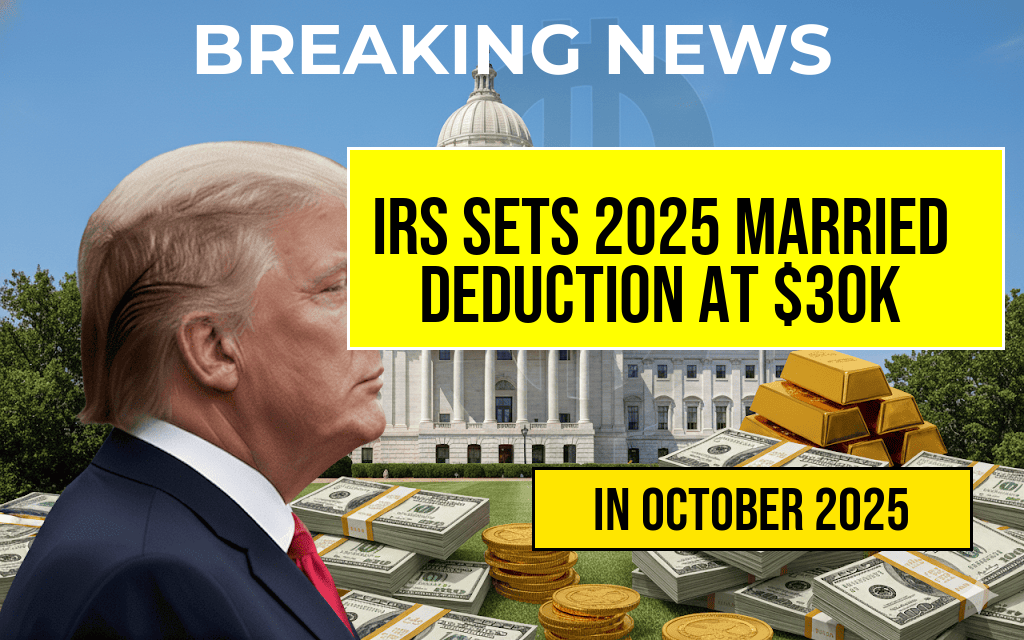The Internal Revenue Service (IRS) is set to impose stricter penalties starting in 2026 for taxpayers who fail to file certain information returns, including the crucial 1099 forms. Under the new guidelines, missing a 1099 could result in a penalty of $290 per form. This increase aims to enhance compliance and ensure that taxpayers accurately report their income, thereby reducing tax evasion. The 1099 form is commonly used by businesses and individuals to report various types of income, such as freelance earnings, interest, and dividends. As the IRS tightens enforcement measures, taxpayers are urged to stay vigilant about their reporting obligations to avoid significant financial repercussions.
Understanding the 1099 Form and Its Importance
The 1099 form series is essential for reporting non-employment income. There are several types of 1099 forms, each designated for different kinds of income. Here are some of the most commonly used forms:
- 1099-MISC: For reporting miscellaneous income, including payments to independent contractors.
- 1099-INT: For reporting interest income earned from banks or other financial institutions.
- 1099-DIV: For reporting dividends and distributions from investments.
- 1099-R: For reporting distributions from retirement accounts.
Each of these forms plays a critical role in ensuring that both the payer and the recipient accurately report their income to the IRS.
New Penalty Structure in 2026
The new penalty of $290 per missing 1099 is a significant increase from previous years. This change is part of the IRS’s broader initiative to improve compliance and close the tax gap—the difference between the taxes owed and the taxes paid. The IRS estimates that this gap amounts to over $540 billion annually.
As part of this initiative, the IRS is enhancing its technology and data analytics capabilities to identify noncompliance more effectively. Missing or incorrectly filed forms can trigger audits and additional penalties, making it crucial for taxpayers to prioritize their reporting obligations.
Who Will Be Affected?
The new penalties will impact a wide range of taxpayers, including:
- Freelancers and Independent Contractors: Individuals who receive 1099 forms for their services must ensure that their clients file these forms accurately.
- Small Business Owners: Businesses that hire contractors or pay interest must be diligent in submitting the necessary forms.
- Investors: Those who earn dividends or interest must keep track of their income sources to avoid penalties.
How to Prepare for the Changes
Taxpayers should take proactive steps to ensure compliance with the new rules by following these guidelines:
- Stay Organized: Keep accurate records of all income sources throughout the year to facilitate timely reporting.
- Communicate with Payers: If you expect to receive a 1099, reach out to the payer to confirm that they will file the form correctly.
- Consult a Tax Professional: If you have questions about your filing obligations, consider seeking advice from a tax expert.
Conclusion
The IRS’s upcoming changes regarding 1099 penalties underscore the importance of accurate income reporting. As taxpayers prepare for these new regulations, understanding the implications of missing forms can help prevent costly penalties. For more detailed information, taxpayers can refer to resources such as the IRS official page on 1099 forms or visit Forbes for expert insights. Staying informed and organized is key to navigating the evolving tax landscape effectively.
Frequently Asked Questions
What is a 1099 form?
A 1099 form is a type of tax document used to report various types of income other than wages, salaries, and tips. It is typically issued by businesses to independent contractors or freelancers who have earned $600 or more in a calendar year.
What are the penalties for missing a 1099 form?
If you fail to file a required 1099 form, you could face penalties from the IRS. In 2026, the penalty for missing a 1099 could amount to $290 per form.
Who is responsible for issuing a 1099 form?
The responsibility of issuing a 1099 form lies with the payer, or the business that has hired the contractor or freelancer. They must ensure that the form is completed and sent to both the recipient and the IRS.
What should I do if I haven’t received my 1099 form?
If you haven’t received your 1099 form by the time tax season arrives, you should contact the payer to request it. If you still do not receive it, you may need to report your income using your own records.
How can I avoid penalties related to missing 1099 forms?
To avoid penalties related to missing 1099 forms, ensure that you keep accurate records of all income received and follow up with payers if you do not receive forms in a timely manner. Filing your taxes correctly and on time is also crucial.






